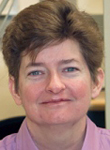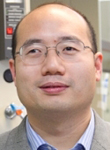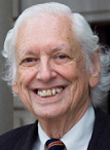Six chemistry faculty receive national awards






Faculty members in the Department of Chemistry and Chemical Biology are recent recipients of prestigious national awards for achievements in their respective disciplines.
Jack H. Freed, the Frank and Robert Laughlin Professor of Physical Chemistry, won the American Chemical Society’s Joel Henry Hildebrand Awardin the Theoretical and Experimental Chemistry of Liquids. Freed is a leader in the development of electron-spin-resonance and has pioneered the development of new instrumentation for the study of complex fluids, membrane vesicles, liquid-crystalline polymers and biopolymers.
Melissa A. Hines, professor and director of the Cornell Center for Materials Research, was awarded the ACS’sArthur W. Adamson Award for Distinguished Service in the Advancement of Surface Chemistry. Hines is an expert in controlling the structure and chemistry of nanoscale surfaces and has developed techniques for selectively creating near-atomically perfect surfaces while also studying the atomistic processes that govern such transformations.
Professor Emeritus Jerrold Meinwald won the ACS’sNakanishi Prize for the study of important biological phenomena. Spanning six decades, Meinwald’s research contributions have ranged from small-ring compounds, highly strained bicyclic ring systems, molecular rearrangement mechanisms, organic photochemistry, as well as the chemistry of natural products and the field of chemical ecology.
Assistant Professor William Dichtel received theNational Fresenius Award for outstanding chemists early in their professional careers. Dichtel has pushed the boundaries of organic chemistry and materials science to achieve unprecedented control of the long-range structure and electronic properties of synthetic macromolecules, including covalent organic frameworks and graphene nanoribbons.
Associate Professor Hening Lin received theEli Lilly Award in Biological Chemistry. Lin’s research has focused on several important nicotinamide adenine dinucleotide-consuming enzymes, notably the sirtuins, which were long thought to promote deacetylation reactions linked to aging and several disease processes. By demonstrating for the first time that sirtuins can catalyze the transfer of acyl groups larger than acetyl, Lin’s studies raise the possibility that other sirtuins with little or no deacetylase activity may promote other acyl transfer reactions involved in post-translational modification of proteins.
Peng Chen, the Peter J.W. Debye Professor of Chemistry and Chemical Biology, received the Coblentz Award for pioneering the development and application of single-molecule fluorescence microscopy to study catalysis on individual nanoparticles. His research has uncovered heterogeneous reactions pathways and differential selectivity among individual nanoparticles, and has advanced the development of single-molecule microscopy and bioinorganic chemistry.
Media Contact
Get Cornell news delivered right to your inbox.
Subscribe